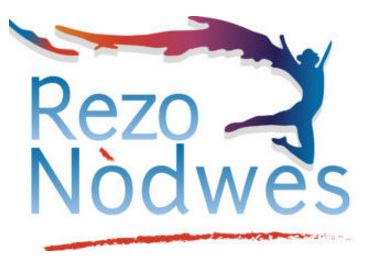By Dr. Lesly Kernisant
January 25, 2021 ((rezonodwes.com))– Short of a full-blown civil war, the current social, political and economic situation in Haiti cannot be resolved by a simple switch of a leader.
It is time that all Haitian expatriates, irrespective of ideological differences denounce loudly and decisively this lingering political stalemate that continues to paralyze the country.
Despite the growing acts of violence and the resulting socio- economic meltdown, Haiti still remains our beloved homeland, a country that was once the beacon of the black intelligentsia in the world. History still reminds us that we were once the main source of black and culturally-competent educators in the world, highly sought after to help our then newly-liberated brothers and sisters of Africa from the chain of colonial dominance in the early 1960s. In fact, this benign exportation of our pool of professional talents and skilled workers started a migratory experiment that has exploded into a community of more than 4 million persons of Haitian origin living in all 5 continents of the globe. Hence, the large Haitian Diaspora that we now represent, almost a third of the country’s total population contributing close to 30% of its current GDP.
As such, the Haitian Diaspora now represents the most powerful force responsible for sustaining the economic engine of the country. For years, we have been the backbone of the socio-economic infrastructure of the country, but unlike many countries where governments formalize specific programs to facilitate Diaspora’s participation in its development, the notion of Diaspora re-integration in Haiti is being generally stigmatized and trivialized using strict exclusionary policies to restrict our full participation in the internal affairs of the country. In many countries and different continents, the Diaspora is overwhelmingly well received and given a platform to gain more relevance and create greater connections with the homeland.
There are many examples of economies, namely India, Israel, D.R., that have benefited from tapping into the fertile source of knowledge and economic empowerment of their migrant communities. At this crucial hour of an impending cataclysm, we cannot continue to passively observe the slow disintegration of our precious national assets that our forefathers fought with their blood and sweats to ensure that we forever remain a proud and free people.
Enough is enough, we should weaponize our financial and human capital in the form of a “Quid Pro Quo” proposal. We should no longer stay on the sideline of the political spectrum and watch as helpless observers, we want to engage plainly in the political discourse and participate fully in the election of the next leader as tax-paying citizens of Haiti.
The U.S electorate just demonstrated that it is possible to make great changes with the power of a simple vote. By demanding unimpeded access to a voting booth, the majority was able to choose a qualified leader and reject a proven demagogue.
I am sure the Haitian-American diaspora, part of the U.S large minority population that is disproportionately impacted by recent social and political policies of the past 4 Trumpian years, did join in substantial number in making a conscious decision for a change. This was a clear demonstration of the power of many forming a strong coalition with a specific objective, a unifying theme using a single voice to effectuate transformational changes.
The same exact method can be applied to Haiti which is now facing yet another acute political crisis. It is nothing new. Haiti is a tortured country, the poorest in the world, having had 14 episodes of change of government with 24 Prime ministers, all booted by a parliamentary system rooted in corruption and wealth-seeking plans. A country where democracy is being normalized as a license to steal and kill with impunity.
For past 34 years, the Diaspora has remained silent, watching passively the same political actors using the destructive elements of demagoguery to actually implement their personal agendas. For these same 34 years, the Diaspora has created a large file of well elaborate concepts on Haiti development, investment opportunities, infrastructure reconstruction, community empowerment, calls for unity.
Unfortunately, these conceptual plans are still being published on the internet by our most loyal compatriots as a defining wish to realize their dream of a re-imagined motherland. Haiti, despite its potentially vast human and natural resources, inside and outside, still remains the “poorest country on earth”, a dubious distinction that makes all of us flinch.









